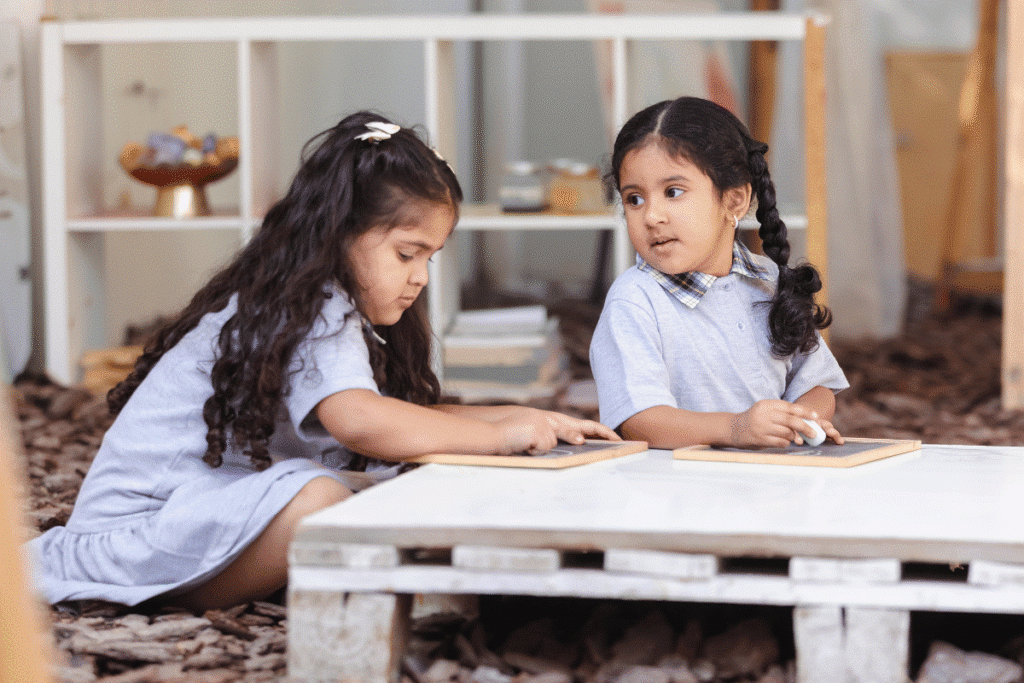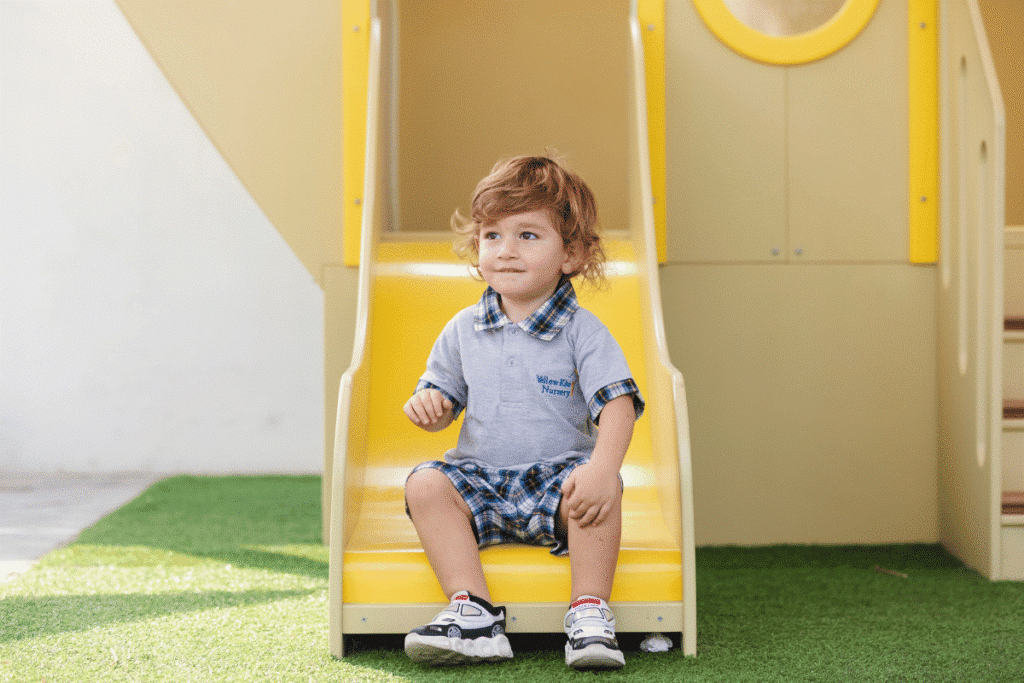As adults, we often feel pressure to know the answers. Someone asks a question, and we’re expected to respond with certainty. But when it comes to children, especially in the early years, the real magic isn’t in knowing the answer. It’s in asking the question.
At Yellow Kite Nursery, we embrace the Curiosity Approach, which is rooted in the belief that learning is not about filling children with facts, but about nurturing their natural sense of wonder. Questions, not answers, are what open the door to exploration, discovery, and deeper understanding.
Let’s explore why asking questions matters so much, how it shapes young minds, and what you can do at home to encourage this kind of learning.
Curiosity is the Foundation of Learning
Children are born curious. Watch a toddler explore a garden, and you’ll see them crouch down to inspect a bug, point at the sky, or ask, “Why is it blue?” This endless stream of “whys” can feel overwhelming, but it’s actually the very foundation of learning.
When children ask questions, they’re:
- Building critical thinking skills.
- Strengthening their language and communication.
- Learning how to problem-solve.
- Developing resilience when they don’t immediately find the answer.
Knowledge can always be taught, but curiosity must be nurtured. If we only focus on giving the “right” answers, we risk shutting down the very spark that makes children excited to learn.
Why Wonder Beats Right Answers
The truth is, answers change. Science evolves. Opinions differ. What matters most is helping children develop the confidence to keep asking and keep exploring.
Encouraging wonder has long-term benefits:
- Lifelong learning: Children who ask questions grow into adults who continue seeking knowledge.
- Deeper connections: Questions help children build relationships as they discover others’ perspectives.
- Creativity and innovation: Wonder sparks imagination, leading to new ideas and solutions.
Think about it: many of the greatest inventions and discoveries started with a simple question like, “What if…?”
What We Do at Yellow Kite Nursery
In our classrooms, questions are not interruptions — they’re the heart of learning. We don’t rush to give answers. Instead, we slow down, listen, and encourage children to explore their own ideas.
- A child might ask, “Why does mud feel sticky?” Instead of explaining the science of water and soil, we invite them to experiment with different mixtures.
- Another child might wonder, “Why does the moon follow us?” We turn it into a conversation, asking what they think, and maybe even acting it out together in play.
This approach honours their curiosity and keeps the learning child-led. It’s not about being the source of all knowledge — it’s about being a co-explorer. As a preschool in Dubai, we’re committed to creating an environment where every question is valued and every child feels empowered to explore.
How Parents Can Nurture Wonder at Home
Parents often ask us, “What should I do when my child keeps asking endless questions?” The answer is: lean into it. You don’t need to know everything. What matters is how you respond.
Here are some practical ways to nurture wonder at home:
- Respond with curiosity: Instead of giving an answer right away, try saying, “That’s interesting, what do you think?”
- Explore together: If you don’t know the answer, research it together in a book, online, or through hands-on play.
- Value the question itself: Sometimes, the act of asking is more important than finding the answer. Celebrate the curiosity.
- Encourage open-ended play: Provide materials like blocks, nature items, or art supplies that spark “what if” thinking.
- Model curiosity yourself: Let your child see you wonder, ask, and explore too. Say things like, “I wonder what will happen if…”
Actionable Tips for Teachers
For educators, it’s easy to fall into the trap of feeling like you need to have all the answers. But embracing curiosity in the classroom changes everything. Whether you’re working at a preschool in Dubai or anywhere else in the world, these principles remain universal.
Try these approaches:
- Pause before answering: Give children time to think and come up with their own ideas.
- Ask open-ended questions: Instead of, “Did you like the story?” try, “What part of the story made you think?”
- Encourage mistakes: Show children that not knowing is part of the process, not something to fear.
- Turn questions into projects: If a group of children are fascinated by insects, create a mini-project where they can investigate, observe, and document.
Shifting the Mindset
As adults, it can feel uncomfortable to admit, “I don’t know.” But children don’t see this as weakness. They see it as permission — permission to keep wondering, to keep searching, to keep learning.
When we value the question more than the answer, we’re giving children a powerful gift: the belief that learning never ends.
Final Thought
At Yellow Kite Nursery, we believe that the science of wonder is far more important than the science of facts. Answers can be found in books or online. But the curiosity to ask the question in the first place? That’s something we must protect, nurture, and celebrate.
As families search for the right preschool in Dubai for their children, we encourage them to look for environments that prioritize curiosity and wonder above all else. Because when children are free to ask questions, they’re free to truly learn.
So next time your child asks their tenth “why” of the day, take a breath, smile, and remember: this is learning at its best.
What’s a recent question your child asked that made you stop and think?


